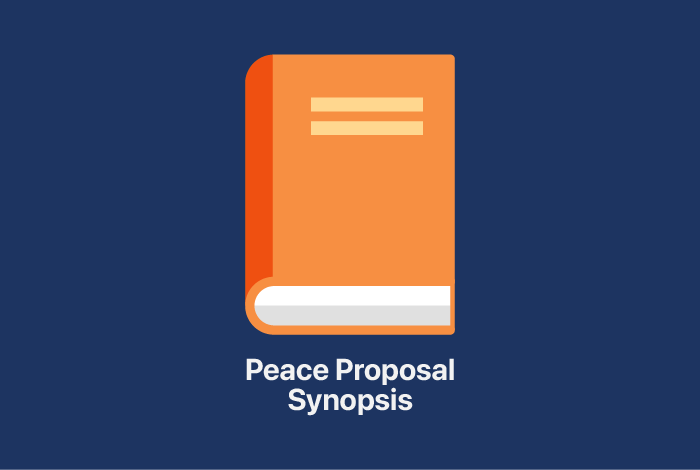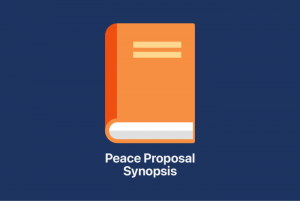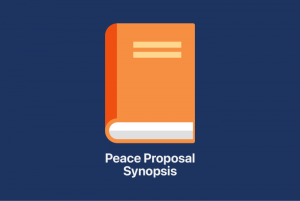Peace Through Dialogue: A Time to Talk
The problems confronting humankind are daunting in their depth and complexity. While it may be hard to see where to begin—or how—we must never give in to cynicism or paralysis. We must refuse the temptation to passively accommodate ourselves to present realities, but must embark upon the challenge of creating a new reality.
The human spirit is endowed with the ability to transform even the most difficult circumstances, creating value and ever richer meaning. When each person brings this limitless spiritual capacity to full flower, and when ordinary citizens unite in a commitment to positive change, a culture of peace—a century of life—will come into being.
Humanity is charged with the task of not merely achieving a “passive peace”—the absence of war—but of transforming on a fundamental level those social structures that threaten human dignity. Efforts to enhance international cooperation and the fabric of international law are, of course, necessary, but even more vital are the creative efforts of individuals to develop a multilayered and richly patterned culture of peace, for it is on this foundation that a new global society can be built.
How, then, are we to go about the task of creating an enduring culture of peace? What is really meant by a culture of peace?
Culture manifests two contrasting aspects. One resonates with the original sense of the word “culture” and involves the cultivation of the inner life of human beings and their spiritual elevation. The other is the aggressive, invasive imposition of one people’s manners and mores on another.
When we look at how specific cultural values have been diffused and how different cultures have encountered one another, it is clear that the process has not always been peaceful. One example is the cultural imperialism that accompanied the European colonization of much of the world in the modern era. Some of the negative aspects of such an approach can be counteracted through a stance of cultural relativism. But if this remains a merely passive tolerance of other cultures, it cannot equip us to deal with globalization. A culture of peace must provide a basis on which a plurality of cultural traditions can creatively interact, learning from each other toward the dream of a genuinely inclusive global civilization.
Peace is a vital and energetic arena of life-activity, won through our own volitional, proactive efforts. Our success in generating a culture of peace hinges on several factors. We must transcend the excessive attachment to difference that is deeply rooted in the psychology of individuals; and we must conduct dialogue on the basis of our common humanity.
To be maximally effective, legal and structural reforms must be supported by a corresponding revolution in consciousness—the development of the kind of universal humanity that transcends differences from within.
We must resist the temptation to assign good exclusively to one side, and evil to the other. In fact, we need to reexamine the very meaning of good and evil. The external manifestations of good and evil are relative and transmutable. They only appear absolute and immutable when the human heart is in thrall to the spell of language and abstract concepts.
From the Buddhist perspective, the true aspect of life is found in its incessant flux, the way that experiences are generated by the interaction between inner tendencies and external circumstances. In other words, what we experience as good and evil are not fixed, but depend on our attitude and response. Good and evil are not unchanging entities: indeed, good contains within it evil, and evil contains within it good.
The Buddhist understanding of life can help us translate the ideal of an inner transcendence of difference into the actualities of daily life. Overcoming negative forms of attachment to difference—discrimination—and bringing about a true flowering of human diversity is the key to generating a lasting culture of peace. And dialogue is the means.
Especially important is the role that women play. Throughout the long history of humanity, women have suffered the most whenever society has been wracked by war, violence, oppression, abuse of human rights, disease and famine. But it has been women, in spite of this, who have persevered in turning society in the direction of good, in the direction of hope and in the direction of peace.
What, then, are the specific steps we can take toward building a new century of peace and creative coexistence?
Within the framework of the sovereign state system, crises have long been defined as territorial issues, and many states have concentrated their efforts on military buildup. But the global issues now confronting us cannot be addressed using conventional approaches. The most crucial challenge is therefore to strengthen the UN, so it may serve as the rallying point of humankind’s joint struggle.
Peace and security must be considered, as Secretary-General Kofi Annan urged in his annual report last year, from a standpoint of the transition from a “culture of reaction” to a “culture of prevention.” A culture of prevention is an approach that accords utmost importance to preventing problems before they happen and thereby minimizing consequent damage, rather than reacting to them after they have taken place.
It is therefore essential to reexamine the role that the UN can and should play in the prevention of conflict. One key proposal is to establish a conflict prevention committee as a subsidiary organ of the General Assembly with a mandate to continuously monitor regions threatened with conflict or war, provide preventive recommendations and afford protection to noncombatants.
We also need a global people’s council that will function as a consultative body to the General Assembly, mandated to advise the General Assembly on themes for deliberation and call its attention to potential threats. Taking full advantage of NGOs’ expertise in information gathering and firsthand experience in their fields of activity, such a council could contribute to the General Assembly’s deliberations by promoting advance discussion of key issues. This is crucial from the perspective of democratization, that is, how to ensure that the views and concerns of ordinary citizens are heard at the UN.
In this connection, the “New Diplomacy,” collaborative efforts between civil society and governments committed to fundamental reform, has emerged as an important new force in the world. One of the key challenges to be addressed under the framework of the New Diplomacy is the promotion of nuclear disarmament, particularly in the form of a campaign to accelerate the ratification of the Comprehensive Nuclear-Test-Ban Treaty (CTBT).
From a Buddhist perspective, there is a deeper significance to nuclear weapons and the need for their elimination. It is more than a matter of disarmament. It is a question of fundamentally overcoming the worst negative legacy of the twentieth century—distrust, hatred and the debasement of humanity. We need to face head-on the limitless capacity of the human heart to generate both good and evil, creation and destruction.
Furthermore, the eradication of poverty is a humanitarian challenge of great urgency. We need ever more bold thinking in this regard, a total commitment to enabling societies to raise themselves out of poverty—a program to be implemented with determination and consistency, equivalent, perhaps, to a “Global Marshall Plan.”
Finally, we need to work for the realization of peace in Northeast Asia. Relations between the two Koreas are improving after many twists and turns. Unfortunately, however, these countries still technically remain in a state of war today. This year marks the fiftieth anniversary of the outbreak of the Korean War, and all sides should seize this opportunity to put an end to the state of cold war, and make the transition to genuine peace. A Northeast Asia Peace University, established in cooperation with the UN University, could contribute to peace and stability in the region on a long-term basis by fostering capable individuals committed to grassroots exchange and peace-building.
The SGI is committed to advancing all of these causes. The SGI has always been committed to empowerment—of the people, by the people, for the people—a process we describe as human revolution. The essence of empowerment is to fully unleash the boundless potential inherent in every human being, based on that the Buddhist understanding that our own happiness is inextricably linked to that of others.
You are reading {{ meterCount }} of {{ meterMax }} free premium articles





